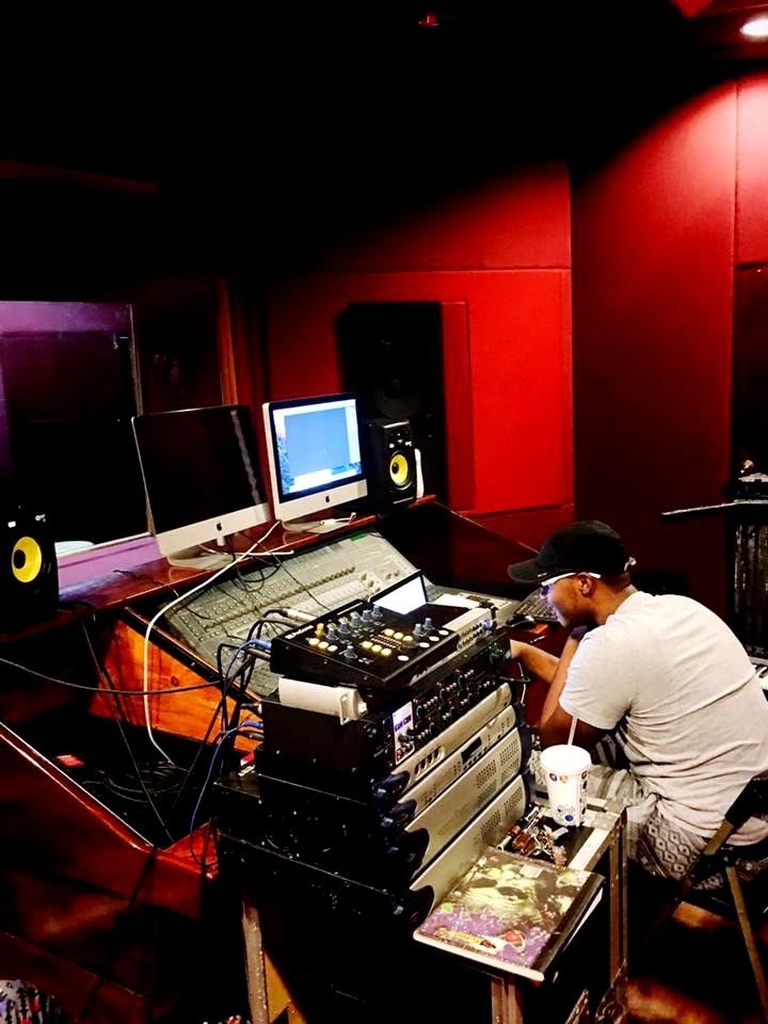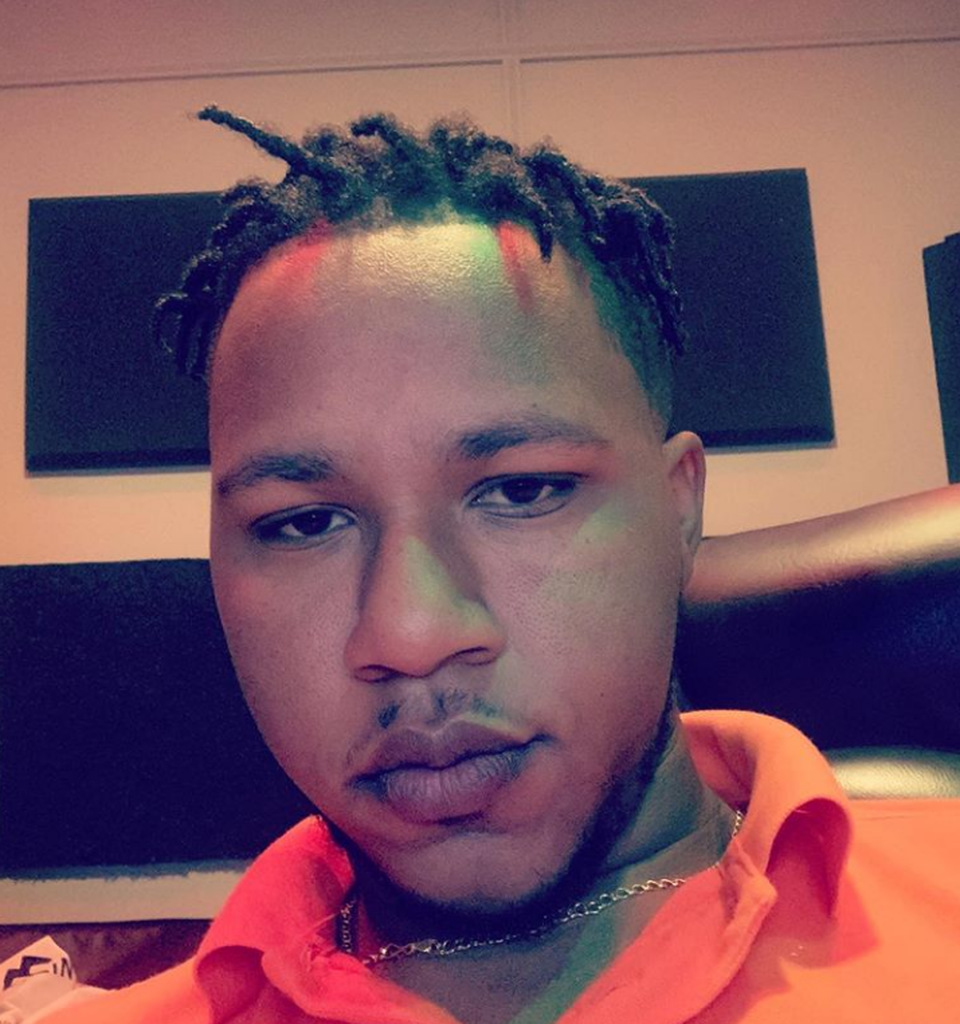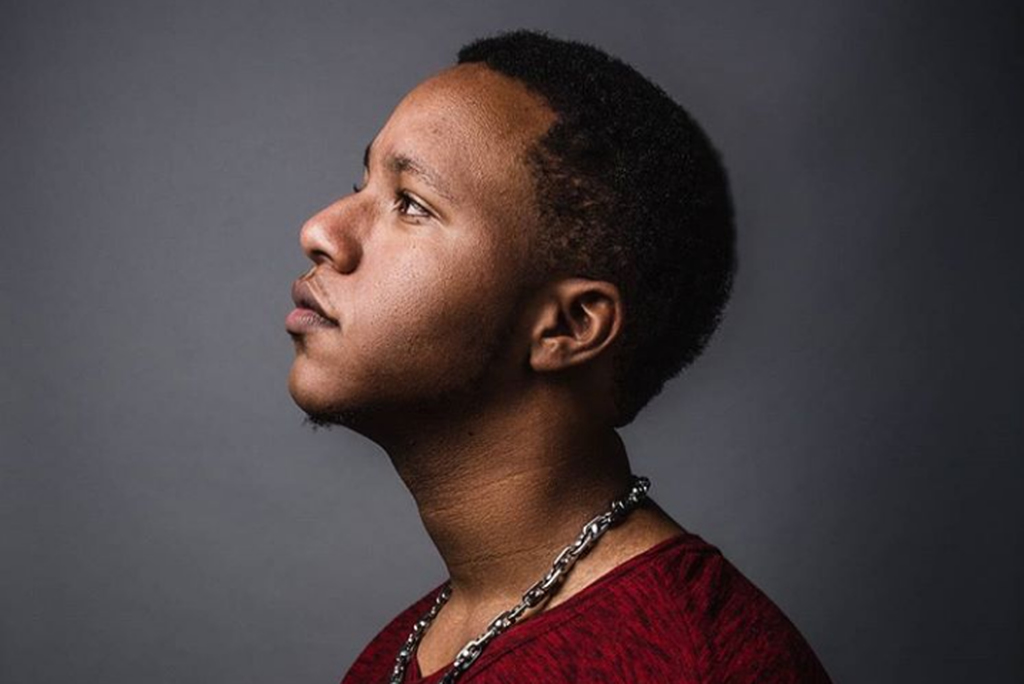Joshua Kelly grew up in church and made his name as a music producer doing gospel songs.
Today, he is the most sought after producer for Trinidad and Tobago’s dancehall artistes, producing songs such as Prince Swanny’s ‘Catch 22’ and ‘Real Mad Dogs’, the late K Lion’s ‘Say’, the late Rebel Sixx’s ‘Uncrowned King’ and the ‘Covid-19 riddim featuring a slew of artistes.
Kelly, who goes by the name Kelly Beatz, says the key to his popularity is way he fuses his musical influences into one sound.
“I put my own lil spin on it. Half of my family from America, the other from Trinidad. I have hip hop and R&B influences so when I added my twist to the dancehall I say nah this could be serious,” said Kelly, who spent a lot of his childhood shuttling between T&T and the United States where his father lived for a while.
“I combine all the music I like. Growing up I listened to a lot of Fred Hammond, Kirk Franklin, Juanita Bynum, old school gospel singers and I used to produce gospel before I started. I just mix all my influences together. I don’t really care about genre,” he said, describing Swanny’s ‘Catch 22’ as an old-school Alicia Keys sound.
Kelly, 23, said his foray into dancehall happened quite by chance in 2018.
The Point Fortin native had moved out of his parent’s home at 21 to live on his own in Golconda when his friend JP asked him to do a dancehall song for his brother Short.
“It was good, the song got about 2000 views even though I was accustomed to doing gospel songs with 200,000, 300,000 views on YouTube but we were starting something new so 2000 views was yay,” he said.
It wasn’t until another friend introduced him to the late Rebel Sixx that he was taken seriously in the dancehall community.
“This was before he buss. We did a song called ‘Stay in Yuh Lane’ and some others that didn’t release. I also did a song with Boy Boy called “Adrenaline”. That is when everybody started taking me seriously. I was telling everybody around me that dancehall was the next big thing but nobody was taking me on.”
With his mother as a pastor and his background in gospel, Kelly’s decision to segue into the Trinibad movement, as local dancehall is called, has not been met with full approval from his family.

Growing up, Kelly was deeply immersed in the church.
His father and brother played drums in church and he joined them around the age of four.
“I played for years till I was seven or eight. When my dad migrated, I went to the US to check him in Charlotte, North Carolina and one day I went up on the Cartoon Network website and there was this game where you could make your own compositions by dragging and dropping loops. I did that every day and then when I went back to Trinidad and my mum bought me a laptop for school so I was just on it constantly.
“My sister took me to her friend’s house one day and that was the wife of gospel singer Koen Duncan. He had a studio and when I saw it I was like whey this real nice. I saw the speakers, keyboards, guitar and it felt familiar because I was like always around instruments. I say I have to do this thing so I went home, I downloaded FL Studio and when I realise what I could do with it I was on it every day, every single day. I used to get in trouble for being too lazy, always on my laptop. I get in real trouble for my music,” said Kelly who used to duck classes at Pleasantville Senior Comprehensive School to work on his music.
Kelly started making beats that were familiar to the southern gospel music his father liked. His father was so impressed, he bought him a USB microphone that Kelly requested for his birthday.
“So I started singing because I had no artist to work with. I started taking Drake’s old songs and remaking the words into gospel songs. I put that on a CD and sold that in church. I couldn’t wait on anybody. I definitely knew I wasn’t going to do anything else in my life.”
He said when his parents saw that he was trying to do gospel they supported him. They bought him another computer and the rest of his equipment.
“They start me off. I dropped my first original song on radio with me and fella called Christopher Sanayhie called ‘Focus’. The song did real good, it was playing on radio plenty. That was the first time I had that kind of experience. I reached out to plenty gospel artistes. Nisa, a gospel singer, sent me to a Jadee and he end up doing a song over a soca riddim called ‘Going Back for What’ and that ended up doing real good. After that artistes started reaching out,” he said.
Acknowledging the criticism over the violent lyrics in dancehall songs, Kelly said while many of the artistes sing positive, uplifting songs, they don’t get the same popularity as the gunman songs.
However, he said, beyond the lyrics, the movement is providing a beacon of hope for the youth in the impoverished communities as it transforms the lives of the artistes.

“I have seen the change,” Kelly said. “I see plenty artistes change from how they were and try to help friends, try to put other men on. Swanny pulling in other artistes under him and giving their friends a forward, they not trying to do it alone. They are trying to spread a positive message, even though they sing a lil badness in their music which I don’t agree with all the time, they try to tell people there is a better way.”
As the genre grows, so does Kelly’s popularity.
That landed him an audience with Prime Minister Dr Keith Rowley where he demonstrated the art of making beats at the PM’s recent Friday Night Lime.
“That experience was real cool. I get to meet the Prime Minister from producing dancehall. It was something I didn’t expect. It felt good to see the Prime Minister take interest in what young people are doing and put aside the negative messages in the music and focus on the craft,” he said.
Asked what he would like to see the winning party do for the people in his industry after the elections, Kelly said he never felt like he needed help from the Government.
“Once I continue working, opportunity will come to me. I may not speak for the majority because I didn’t grow up as hard as others but all I need is a laptop and headphones. I don’t need nothing else,” he said, stating that many youth simply need access.
“When Kamla gave out laptops in schools, that birth a whole generation of DJs. In Point Fortin alone it have about 50 DJs. Access. That is all they need. A computer gives you access to many things and starting many different careers.”

